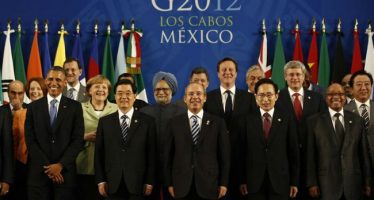World Bank Supports New Innovative Financing to Reach SMEs and Exporters in Turkey
 The World Bank’s Board of Directors today approved a US$250 million equivalent loan for the Innovative Access To Finance Project for Turkey whose main development objective is to improve access to longer-term Islamic finance and to factoring for small- and medium-enterprises (SMEs) and export-oriented enterprises (EOEs).*
The World Bank’s Board of Directors today approved a US$250 million equivalent loan for the Innovative Access To Finance Project for Turkey whose main development objective is to improve access to longer-term Islamic finance and to factoring for small- and medium-enterprises (SMEs) and export-oriented enterprises (EOEs).*
The project will be implemented by Türkiye Sinai Kalkınma Bankasi (TSKB) as borrower, with a government guarantee. TSKB will intermediate the loan through participation banks and factoring companies targeting SMEs and EOEs. The project has two sub-components:
- Sub-component 1 will focus on Islamic finance (estimated at US$160 million), and
- Sub-component 2 will focus on factoring (estimated at US$90 million).
“Turkey’s SMEs are the motor of its economy, however, they still face greater constraints in accessing finance than larger companies,” said Martin Raiser, World Bank Country Director for Turkey, on the occasion of the loan approval. “The World Bank has supported the development of long-term finance in Turkey with over US$4 billion in commitments over the past decade.”
“Turkey’s SMEs are the motor of its economy, however, they still face greater constraints in accessing finance than larger companies.”
– Martin Raiser, World Bank Country Director for Turkey
Raiser added that “As domestic financial markets are becoming more sophisticated, we, ourselves, are switching to innovative financing instruments. Islamic finance is based on the principles of risk-sharing and asset backing, a component of trade, rather than risk-transfer, as seen in conventional banking. Together with factoring, they provide attractive alternatives to traditional bank loans by alleviating constraints for SMEs related to the lack of collateral and credit history.”
The lending instrument for the Innovative Access to Finance Project is an IBRD variable spread loan, with a total maturity of 28 years, including a grace period of 7 years. Repayment will be linked to commitment, with a level repayment pattern.
*For the purpose of this project, SMEs are defined as firms that employ fewer than 250 people and have annual turnover or asset size of less than TL40 million, and EOEs as exporting firms that employ fewer than 1,000 people.
You may have an interest in also reading…
Johannesburg Stock Exchange: Pioneering Sustainable Development
Shifting attention away from the next quarter’s results towards sustainability parameters indicative of long-term objectives, has been a challenge for
US Welcomed at Davos as the New Emerging Market
The annual meeting of top businessmen, leading public officials, and a host of other VIPs in Davos usually sees emerging
G20 Summit: Merkel still wants both Austerity and Growth in the Eurozone… but still no clue as to who will pick up the tab
Angela Merkel brushed off criticism of her focus on austerity, as the leaders of the world’s 20 largest economies focused


















































































